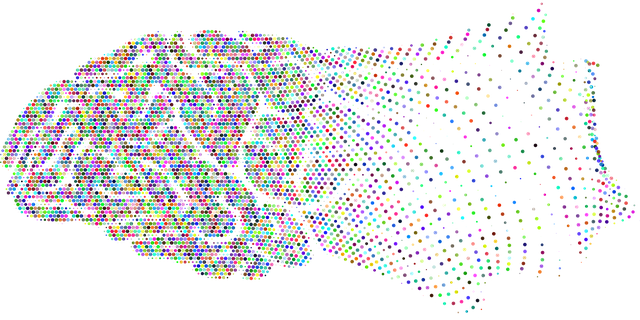Substance abuse in Greenwood Village is linked to underlying mental health conditions like OCD, posing risks including physical and cognitive impairments, and social isolation. Early intervention through specialized Greenwood Village Obsessive Compulsive Disorder Therapy integrating conflict resolution and healthy self-care can prevent abuse and promote mental wellness. Adopting a healthy lifestyle, engaging in hobbies, and stress management techniques enhance resilience. Professional support groups and therapy centers provide evidence-based practices and peer support for long-term recovery, building emotional intelligence to manage triggers and intense emotions effectively.
Substance abuse poses significant risks to individuals and communities, impacting physical and mental health. This article explores comprehensive risk reduction strategies for substance abuse, offering practical guidance tailored to various aspects of prevention. From understanding the underlying causes and identifying personal risk factors to implementing lifestyle changes and leveraging professional support, these steps empower individuals to make informed choices. For those in or around Greenwood Village seeking specialized help, such as obsessive-compulsive disorder (OCD) therapy, understanding these strategies can facilitate a healthier, more resilient life.
- Understanding Substance Abuse and Its Risks
- Identifying Personal Risk Factors
- Lifestyle Changes for Prevention
- Professional Help and Support Groups
- Building a Resilient Mindset
Understanding Substance Abuse and Its Risks

Substance abuse is a complex issue that involves the excessive and harmful use of drugs or alcohol, leading to significant negative impacts on an individual’s health, relationships, and overall well-being. It’s crucial to recognize that this behavior often stems from underlying mental health conditions, such as Obsessive Compulsive Disorder (OCD) in Greenwood Village, which requires professional therapy for effective management. The risks associated with substance abuse are multifaceted, encompassing physical health deterioration, cognitive impairments, and social isolation.
Understanding these risks is the first step towards implementing risk reduction strategies. By integrating conflict resolution techniques and fostering healthy self-care practices, individuals can develop a robust self-care routine that promotes better mental health. This proactive approach not only mitigates the potential for substance abuse but also empowers individuals to lead fulfilling lives free from the shackles of addiction.
Identifying Personal Risk Factors

Understanding personal risk factors is a crucial step in preventing substance abuse and promoting mental wellness. Individuals who struggle with conditions like Obsessive-Compulsive Disorder (OCD) may face unique challenges that contribute to their vulnerability. For instance, the intense rituals and compulsions associated with OCD can lead to a distorted sense of control, pushing some individuals towards self-medication as a coping mechanism. Identifying these underlying issues is essential in Greenwood Village, where access to specialized Obsessive Compulsive Disorder Therapy plays a pivotal role in crisis intervention guidance.
Public awareness campaigns development should focus on educating people about the intricate relationship between mental health disorders and substance abuse. By recognizing personal risk factors early on, individuals can seek appropriate support before escalating into harmful behaviors. Such proactive measures can significantly reduce the chances of developing an addiction, ensuring better long-term outcomes for those navigating challenges related to OCD or other mental health concerns.
Lifestyle Changes for Prevention

Adopting a healthy lifestyle is a powerful tool in preventing substance abuse and promoting well-being. This includes regular physical activity, which releases endorphins that can improve mood and reduce stress levels, making it an effective strategy for managing cravings. A balanced diet rich in essential nutrients supports mental clarity and overall health, enhancing one’s ability to make positive choices. Additionally, cultivating hobbies and engaging in social activities can divert attention from potential triggers and build a sense of belonging, which is particularly beneficial for individuals seeking to overcome addiction.
Greenwood Village Obsessive Compulsive Disorder (OCD) therapy emphasizes the importance of these lifestyle changes, often incorporating techniques like cognitive-behavioral therapy to promote positive thinking and inner strength development. Stress management workshops organized by mental health organizations can also equip individuals with tools to cope with anxiety and stress without turning to substances. By focusing on personal growth, building a supportive network, and developing effective coping mechanisms, individuals can strengthen their resilience against substance abuse.
Professional Help and Support Groups

Professional help and support groups play a pivotal role in effective risk reduction for substance abuse. For instance, individuals struggling with addiction can benefit immensely from therapy offered by experts like those at Greenwood Village Obsessive Compulsive Disorder Therapy centers. These specialized therapists employ evidence-based practices to address underlying psychological triggers contributing to substance misuse.
In addition to individual therapy, support groups facilitated by experienced facilitators provide a safe and non-judgmental space for sharing experiences, gaining insights from peers, and cultivating inner strength (Inner Strength Development). Mindfulness meditation techniques, often integrated into these programs (Mental Wellness Coaching Programs Development), help individuals manage cravings, reduce stress, and enhance overall mental wellness. Through collective support and personal growth strategies, individuals can develop coping mechanisms, build resilience, and sustain long-term recovery.
Building a Resilient Mindset

Building a resilient mindset is an essential component of any risk reduction strategy for substance abuse recovery. This involves learning to navigate and manage intense emotions, particularly those linked to stress, anxiety, or past traumas that can trigger cravings. Greenwood Village Obsessive Compulsive Disorder (OCD) Therapy offers valuable insights into cultivating emotional intelligence, which plays a pivotal role in fostering resilience.
Emotional Intelligence allows individuals to recognize and understand their feelings and the feelings of others, enabling effective communication strategies. By employing empathy-building strategies, individuals can enhance their connections with support systems, reduce feelings of isolation, and develop healthier coping mechanisms. This, in turn, strengthens their ability to resist substance abuse triggers and make more positive choices towards a fulfilling life.
Substance abuse is a complex issue, but with the right strategies, individuals can significantly reduce risks and lead healthier lives. By understanding the nature of substance abuse, identifying personal risk factors, adopting preventive lifestyle changes, seeking professional help, and cultivating resilience, people in Greenwood Village and beyond can navigate this challenge successfully. Remember, reaching out for support is a sign of strength, and with the right resources, such as Greenwood Village OCD therapy, it’s possible to overcome these struggles and build a brighter future.








